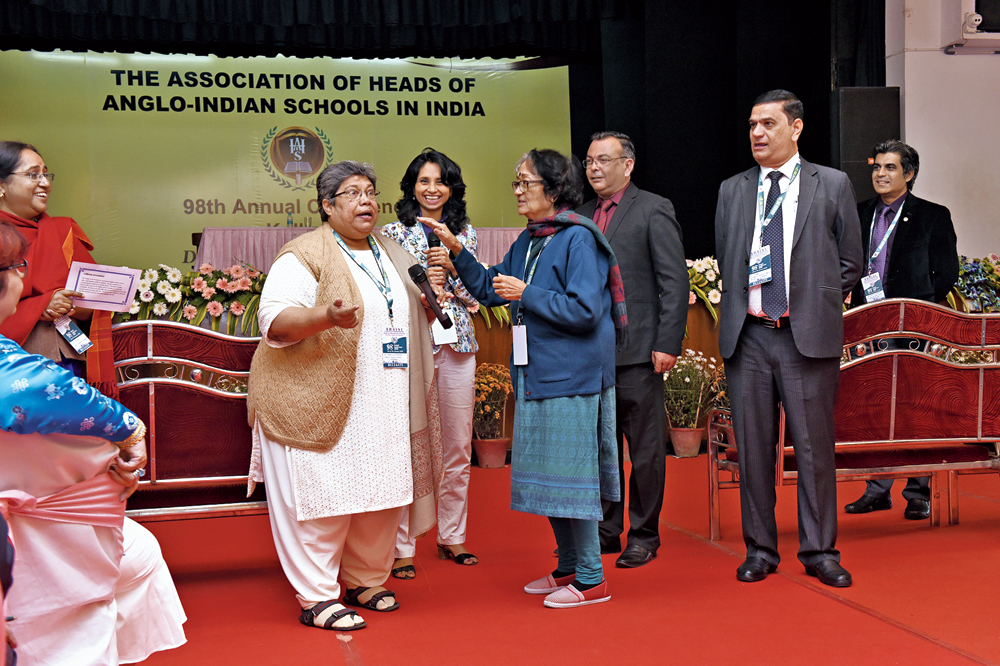Scene 1: Two classmates are waiting for the lunch bell. One is eager to eat her friend’s biryani.
Scene 2: The mother of the child who had the biryani seeks an appointment with the principal. The parent wants her daughter’s place in class to be changed because her friend brings “non-vegetarian food”. “My child is harassed and forced to eat non-vegetarian,” the mother says.
Scene 3: The principal calls the students. Both say they are happy to share each other’s lunch. The class teacher says there is no problem in class.
An increasingly apparent real-life situation was enacted at the annual conference of the Association of Heads of Anglo-Indian Schools in India on Tuesday in Calcutta.
The objective was to understand problems at hand and find ways to deal with them.
The school heads role-played to show a particular situation and even those who were not among the performers discussed what has emerged as one of the most vexing classroom problems: intolerance.
Several school heads from various states told The Telegraph that what was once an exceptional situation is now “rampant”. “This is what we are facing now,” said a head from a southern Indian state.
Principals at the conference agreed that it was not about “food preferences” but “tolerance” that the students need to be told.
“Its not about the food but tolerance that we must have. The children are someone we can take into confidence through our practices. You give them the good values and they will follow,” said Margaret King, principal of Loreto Day School Sealdah.
Increasingly, schools are having to deal with the religious leanings of parents which have found a way into classrooms. They are coming across instances of parents objecting to students bringing meat dishes for lunch and requests to change a child’s seat.
Schools have noticed parents putting more “stress” on these changes more than their children.
“It is the parents who lay stress on it rather than the child and it has escalated more than ever before. Earlier, all children would share their tiffin without even knowing who the other one is. But now we see some children, not all, during lunch break sitting in groups according to their food preferences,” said Aruna Gomes, principal of Loreto House.
Gillian Rosemary Hart, principal of Welland Gouldsmith School, Bowbazar, said: “Not just eating but living together and tolerating one another and our own differences, that is what unity in diversity is about…. As principals, we should encourage the children. And more than the children, the parents to integrate and not to be narrow in their views. They must be more open. We must all be more inclusive in all that we do.”
The Telegraph Metro had reported on December 29 how some schools were talking to students about diversity, plurality, equality and freedom of choice while some others had conducted meetings with parents to tell them that their religious preferences or affiliation should not be reflected in their children.
The role-playing session was conducted by Hart, who said it was an addition this year because it would bring out aspects that are unfolding in a way people will remember. “We show the problems that we are all facing and give solutions. There is activity and more people are involved,” Hart said.
The four-day conference ended with the role-plays at La Martiniere for Boys on Tuesday.










